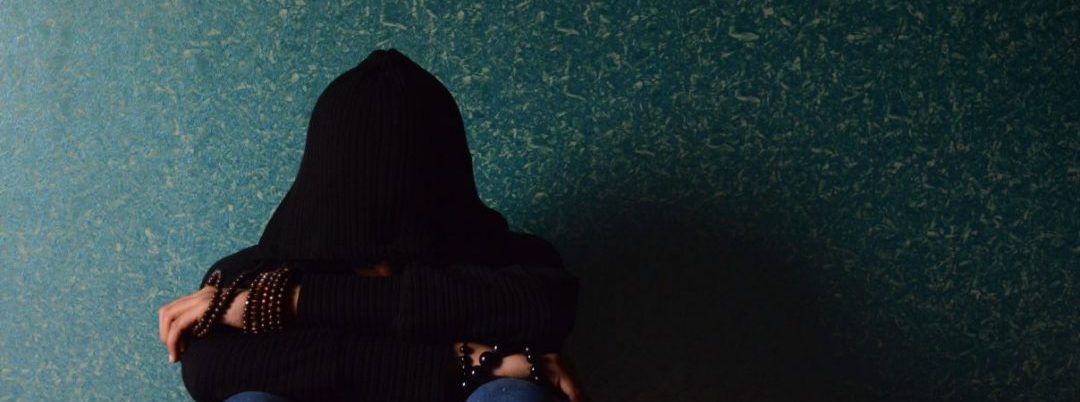
According to the Diagnostic and Statistical Manual of Mental Disorders, the essential feature of a major depressive episode is either depressed mood or loss of interest in daily activities over a period of at least two weeks. In children and teens, the mood may not be depressed but irritable instead. Many individuals report an impaired ability to focus, to think, or even make the tiniest of decisions. Thoughts of suicide as well as suicide attempts are also common.
Diagnostic Criteria for Major Depressive Disorder DSM-5
The following criteria, as determined by the DSM-5, must be met in order for a diagnosis of major depressive order to be made:
At least five of the following symptoms must be present during the same 2-week period and represent a change from previous functioning. Additionally, at least one of the symptoms is either a depressed mood or a loss of interest or pleasure.
- The individual experiences a depressed state most of the day, virtually everyday, as recognized by thy self or others.
- He or she has a significantly decreased interest in all or most activities for the majority of the day, nearly every day.
- The individual gains or loses a significant amount of weight, or experiences a decreased or increased appetite nearly every day.
- He or she has insomnia or hypersomnia almost every day.
- Psychomotor hindrance nearly every day, which is observable by others and not just self-reported.
- He or she feels fatigued or tired nearly every day.
- The individual has feelings of worthlessness or excessive guilt nearly every day.
- The individual’s ability to think, concentrate, or make decisions is diminished nearly every day.
- He or she has recurrent thoughts of death, suicidal ideation (without a specific plan), or a suicide attempt or specific plan for committing suicide.
- The aforementioned symptoms cause clinically significant distress or impair everyday function.
- The depressive episode cannot be attributed to the physiological effects of a substance or other medical condition.
- The occurrence of the episode is not better explained by a specified or unspecified schizophrenia spectrum disorder or other psychotic disorders.
- The individual has never had a manic or hypomanic episode.
The diagnostic code for major depressive disorder is based on recurrence of episodes, severity, presence of psychotic features, and status of remission. These codes are as follows:
Severity
Mild
Moderate
Severe
With Psychotic Features
In Partial Emission
In Full Remission
Unspecified
Single Episode
296.21 (F32.0)
296.22 (F32.1)
296.23 (F32.2)
296.24 (F32.3)
296.25 (F32.4)
296.26 (F32.5)
296.20 (F32.9)
Recurrent Episode
296.31 (F33.0)
296.32 (F33.1)
296.33 (F33.2)
296.34 (F33.3)
296.35 (F33.41)
296.36 (F33.42)
296.30 (F33.9)
The following are additional specifiers for depressive episodes:
- With anxious distress
- With mixed features
- With melancholic features
- With atypical features
- With mood-congruent psychotic features
- With mood-incongruent psychotic features
- With catatonia
- With peripartum onset
- With seasonal pattern
Who Is at Risk of Developing Major Depressive Disorder DSM-5?
The twelve-month prevalence of major depressive disorder in the United States is roughly 7%; however, there are clear variations between sexes, as females experience 1.5 to 3-fold higher rates than males. Major depressive disorder may emerge at any age, but it’s likely to surface with puberty and peak in the 20s. Additionally, there are a few risk and prognostic factors:
1) Temperamental: Neurotic individuals are more likely to develop major depressive disorder as well as depressive episodes in response to stressful life events.
2) Environmental: Rough childhoods can put someone at a greater risk of developing major depressive disorder.
3) Genetic and physiological: Individuals with close relatives who have major depressive disorder have a risk for the disorder 2 to 4-fold higher than that of the general population.
4) Course modifiers: Basically all major non-mood disorders increase the risk of someone developing depression. Substance use, borderline personality disorders, and substance use make up a large portion of these non-mood disorders. On the contrary, depressive episodes worsen diseases like diabetes and cardiovascular disease.
Treatment for Major Depressive Disorder
Individuals who suffer with major depressive disorder have a few treatment options. These include:
- Psychotherapy: This involves talking about an individual’s feelings of depression with a mental health professional. It is designed to help the individual find better ways to cope, identify issues that contribute to depression, and identify negative behaviors and replace them with positive ones.
- Medication: Antidepressants are typically used to treat major depressive disorder and other feelings of depression. These include SSRIs, SNRIs, and many others. One must go on their own medication journey, as the same drug does not work the same way for all individuals. It may be effective for one person and ineffective for another. But there are plenty of medications to try until you find the right one for you.
Let’s keep in touch! Sign up to receive our newsletter:
Start a Relationship with An Exceptional Counselor
- Skilled and caring professional counselors
- Accepting all major and most insurances
- High-touch customer service & premium benefits
- Same- or next-day appointments
- Ultra-flexible 23.5hr cancellations














When you go through a new creation of Kojima Productions you will definitely find that some orders and deliveries require to overcome a huge distance.
To walk all the way on foot, you’ll have to spend a lot of time. Luckily, you’ll have the opportunity to find and even make a variety of vehicles in Death Stranding, that can help you do the job.
Any vehicle in the game requires batteries that run out of power over time, so they need to be recharged regularly, although they will be slowly recharged in sunny or cloudy weather (unless you are in a temporary rain zone).
Since one Additional Specifier is “With seasonal pattern”, an additional treatment should be added, such as “Daily exposure to bright light (e.g., 10,000 Lux Bright Light Box, 30+ mins each morning”).
Do they no longer deem ECT the best treatment for MDD??….